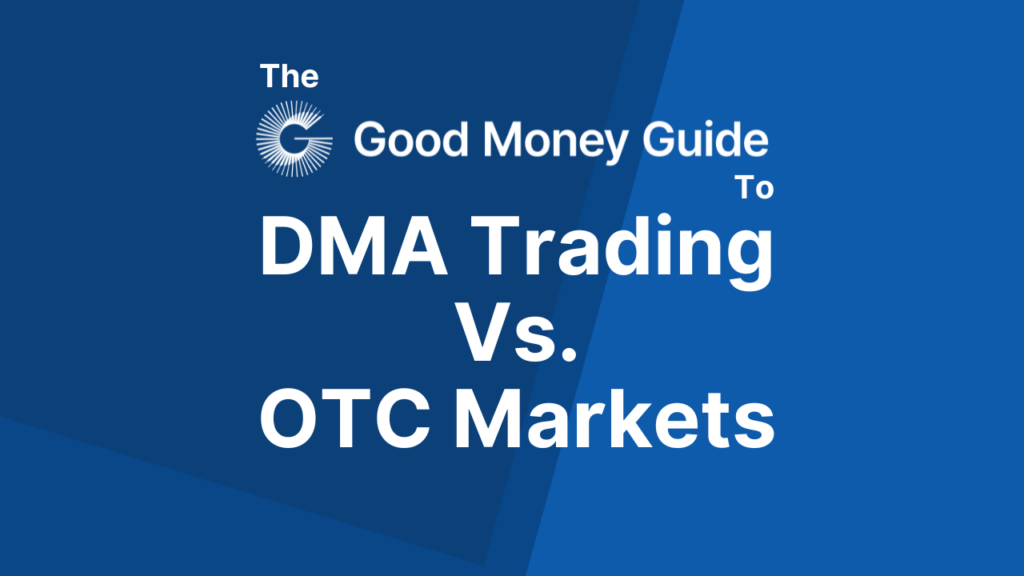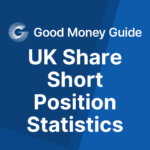There are two types of counterparties when you trade either an exchange (DMA) or a broker (OTC). In this guide I’ll explain what OTC and DMA trading is, their pros and cons and what type of trader they are most appropriate for.
DMA Trading
DMA trading means Direct Market Access, it is where you deal in on-exchange contracts and are trading on prices set by multiple brokers and market makers feeding their orders into a central exchange. I would say it is more appropriate for larger traders who trade in size or with very high frequency.
Pros:
- Better pricing
- More liquidity
- More complex order types available
Cons:
- Commission-charged post-trade
- Normally have to pay exchange fees on orders
- Subscriptions for live data can add up for smaller accounts
Most suited to:
- Professional and institutional traders
- High-frequency traders and scalpers
- Traders working large orders than need finessing.
OTC Markets
OTC refers to over-the-counter trading platforms where you are trading against your broker’s price. Sometimes a broker will hedge that trade in the underlying market straight away, but more often than not retail order flow is managed on the b-book. OTC markets are perfectly suitable for retail traders who do not need that much liquidity for smaller orders.
Pros:
- Commission is included in the price
- Easy to calculate P&L
- Prices are very competitive now
Cons:
- Your broker could be betting against your traders
- Counterparty risk with with your broker
- Brokers can widen prices at will
Most suited for:
- Smaller traders
- Medium-term bets on the market
- Beginners
Key differences between OTC and DMA trading
If you’re a retail trader and are considering upgrading from a CFD or spread betting broker to a DMA trading platform here is a quick summary of the main differences and if it matters.
DMA is not tax-free
One of the main advantages of using a spread betting broker for trading is that profits are tax free. As your trades are structured as an amount per point move bet they are not subject to capital gains tax. So if you are a profitable trader acting in a personal capacity you have to weigh up whether or not paying tax on profits is more important than direct market access. You can’t trade DMA through spread betting, you will need a CFD broker.
DMA prices are much tighter
This is true, with DMA you get direct market access to the underlying exchange. So if for example, you are looking at trading a stock on the LSE the prices are: DMA: 644.5/644.8 versus CFDs/spread betting644.5/646. But with DMA it actually gets better because you can put your buy or sell orders inside that spread to make the prices even tighter. Obviously, if you want to buy at 644.6 instead of 644.8 (as is offered) and there are no sellers you won’t get filled. But you do have the opportunity for better pricing.
OTC reduces admin versus DMA commissions
One of the great things about OTC CFD brokers is that all the costs are built into the spread. But with DMA, your broker will charge you a commission as an extra line on your statements. You also have to manually factor this into your profit and loss when you open and close the trade. Direct market access also comes with high minimum ticket commissions so if you are a small trader it’s not worth it as the minimum commission for DMA will probably be around £10 in and out so if you’re planning on scalping you’ll have to make more than a few points to break even.
Trading with direct market access (or DMA) enables you to place your orders direct with the exchange through a broker. Which means instead of having to buy at the offer (the higher price) and sell at the bid (the lower price) you can be the bid and be the offer.
So you work limits and buy at the lower price and sell at the higher price.
Of course, this is only the case if there is a seller willing to hit the bid or a buyer willing to lift the offer with market orders.
If you are trading with spread betting without DMA then you will have to buy/sell at your spread betting brokers quoted prices. As the broker will widen the market spread to incorporate commission.
With DMA trading you work a limit at a price and your order is in the market, so you are filled at your price when it trades. Brokers will add a commission on the trade when you buy and sell.
It’s basically a preference thing really. Spread betting and CFDs on OTC has the advantage of being neat and tidy. You see a price, you deal and that’s that. No tax, commission or admin. You just work your profit and loss from your buy and sell price

Richard is the founder of the Good Money Guide (formerly Good Broker Guide), one of the original investment comparison sites established in 2015. With a career spanning two decades as a broker, he brings extensive expertise and knowledge to the financial landscape.
Having worked as a broker at Investors Intelligence and a multi-asset derivatives broker at MF Global (Man Financial), Richard has acquired substantial experience in the industry. His career began as a private client stockbroker at Walker Crips and Phillip Securities (now King and Shaxson), following internships on the NYMEX oil trading floor in New York and London IPE in 2001 and 2000.
Richard’s contributions and expertise have been recognized by respected publications such as The Sunday Times, BusinessInsider, Yahoo Finance, BusinessNews.org.uk, Master Investor, Wealth Briefing, iNews, and The FT, among many others.
Under Richard’s leadership, the Good Money Guide has evolved into a valuable destination for comprehensive information and expert guidance, specialising in trading, investment, and currency exchange. His commitment to delivering high-quality insights has solidified the Good Money Guide’s standing as a well-respected resource for both customers and industry colleagues.
To contact Richard, please see his Invesdaq profile.



